Liz Miranda ’02 (left), photo by Webb Chappell; Lisa Shin ’91 (right), photo by Stefan Wachs
It’s just before lunch at the Cape Verdean Adult Day Health Center in Dorchester, Mass., and someone turns down the blaring dance music so that Liz Miranda ’02 can call a raffle.
It’s fewer than three weeks to Election Day, so in between shouting ticket numbers in confident Cape Verdean Creole—um, sax, séti, trés—Miranda reminds the seniors to vote on Nov. 6.
Miranda’s prize is much more consequential than the dollar-store scarves she’s handing out—a seat in the Massachusetts State House to represent her home district.
A five-minute drive gets you to Miranda’s campaign office on Bowdoin Street in Roxbury, nestled among Brothers Barbershop, Pollo Chicken on the Grill, and Chung Wah Chinese Food. The office is decorated with handmade signs, community-event flyers, and a calendar wall made out of printer paper with Post-its marking campaign events.
Nearly every person Miranda walks by on Bowdoin Street calls out her name—if she hasn’t called out his or her name first. The guy driving a city maintenance truck. The woman cutting hair at the salon. A community youth soccer coach, who happens to be her campaign coordinator’s uncle.
When she was growing up here, Miranda never dreamed she’d run for office. But in the 2018 midterms, she became one of a record number of female candidates who ran for state and national office. That wave included 12 Wellesley alumnae who ran in elections for statewide office.
Most, though not all, of these candidates were Democrats, energized by the issues that matter most to them, and wanting to counter national rhetoric about women, immigrants, and people of color.
Like Miranda, these candidates ran because they decided they were the best for the job. That decision to run, however, was only the first step. Many had to navigate their own rocky paths—they had little or no campaign experience, free time, or donor networks. But they knew how to mobilize, and that’s what they did—pulling in family, friends, alumnae, and strangers to help.

Photo by Webb Chappell
Across the country in Los Alamos, N.M., optometrist Lisa Shin ’91 waged a quieter, but no less passionate, campaign for a seat in her own state legislature.
On a sunny afternoon a few weeks before Election Day, Shin and a few volunteers in blazing red shirts canvassed a suburban neighborhood near her campaign headquarters.
Her district stretches about two hours by car. It includes downtown Los Alamos—where Shin has owned her own optometry practice for two decades—and remote mountain towns surrounded by towering red rock formations.
Shin’s campaign is a tough sell going into Nov. 6. She is running as a Republican in a district that has been held by Democrats since 2012.
As Shin goes door-to-door, she quickly gauges whether or not the person answering is open to talking. If they are, she talks about local issues—education, child care, and protecting jobs at the nearby the Los Alamos National Laboratory.
Once in a while, someone she recognizes as a patient opens the door, and she asks if their eyeglass prescriptions are OK or if they need any adjustments.
In most campaigns, volunteers are trained to escalate the conversation with any voter who will engage—try to get them to donate money or hang a sign. But that’s not how Shin operates.
She explains that she doesn’t want to push too hard—it’s awkward. People are just living their lives, and she understands that not everyone agrees with her or her conservative positions, she says. And as one of only a few optometrists in town, she’s wary of alienating or annoying people who might be patients by talking about politics.
Shin’s first priority is being in the community to talk about her candidacy and platform with as many people as possible.
Early one Sunday morning, Shin, her daughter, and four volunteers split into two cars and drive an hour away to a rural part of the district. She and her volunteers attend Sunday service at Jemez Mountain Baptist Church—“A Small Country Church for the Lost and Found.” They sit quietly in a row behind fewer than 20 attendees during the service, leaving election material with the pastor who said he was hoping she’d stop by. Later they hit a trail sale—a miles-long garage sale. In this region, Shin explains, it can take hours just to reach a few houses, so she relies on community events like these to talk to several people at once.
When Miranda was born, her mother, a Cape Verdean immigrant, was just a junior in high school.
Her mom, Miranda says, had to work “as many hours as possible” at her minimum-wage job as cook at the Sheraton Boston just to try to get food on the table.
As an elementary-school student in Roxbury, Miranda remembers her teachers saying, “She’s really smart, she gets good grades, and she talks a lot.” Her mom wasn’t thrilled about that feedback, so Miranda quieted down.
As she got older, she attended Boston’s O’Bryant School of Mathematics and Science, a college-prep public exam school. Though strong academically, it is under-resourced. Miranda remembers taking a biology class that didn’t have any microscopes.
Miranda is still deeply connected to O’Bryant. Just like on Bowdoin Street, she says hello to every other person she walks past. As we walk down a hallway with paint peeling and the ceiling falling in a little, she pops into classrooms to introduce herself, asks students how they are doing, and encourages them to work hard.
As she enters the lunchroom, four women working in hairnets and aprons run out from behind the counter, squealing, to give her a hug. They want to take pictures with their illustrious alumna. One asks if she was a Democrat, just to make sure, and then says she will definitely be voting for her.
“It’s so weird, because now people say things like, ‘That’s Liz Miranda.’ And I’m like, ‘I’m just Liz,’” she says.
Miranda did well in high school, but at that point in her life, she certainly didn’t imagine herself running for office. “I didn’t want to get pregnant, and I didn’t want to not go to college,” she says. That’s how far she could see.
“How would I know as a 5-year-old girl walking down Dudley Street that one day I’d get to represent the same streets? Like, are you f****** kidding me?” she says. “I never thought that way.”
Attending Wellesley, she says, opened up an entirely new world for her. The large banners that hung from lampposts on campus reading: “Women Who Will,” “Make a Difference,” “In the World” were especially motivating.
“Every day, seeing the ‘Women Who Will’ completely changed my life,” she says. “Just seeing that made me a different person.”
It was also tough. Wellesley was only 12 miles away from home, but might as well have been on a different planet. The racial and class differences were stark. “After the first semester, I was like, ‘I don’t belong here,’” Miranda says. “I would go in the library and see these big portraits of white women, and I’d be like, ‘This is not me.’ Even meeting black women whose parents were doctors and lawyers for the first time, I was like, ‘That’s not me, either.’”
But she found ways to connect her world to the College—through the Africana studies department, and by doing an experiential project on art as activism.
“Wellesley inspired me over and over again,” she says, “to be the type of person who would come back to make a difference my own community.”
And that hardship propelled her to solidify her own purpose. “It was so uncomfortable, and so different and so challenging,” she says, “that I think you cannot leave there regular. You can’t leave there without a deep sense of ‘This is what I’m meant to do in the world.’” After Wellesley, Miranda went to work as a community and youth organizer in Boston, eventually becoming executive director of the Hawthorne Youth and Community Center in Roxbury in 2017.
‘I literally learned how to run for office, and the next week was hitting the ground running trying to get signatures.’
—Liz Miranda ’02
Shin says her Wellesley classmates would be “shocked” to see how involved she is in politics now.
“Growing up, in the Korean-American community,” she says, “politics is not a career that’s encouraged. I would have never considered that.”
Her parents came to the U.S. from South Korea, and she was a soft-spoken child and student—a self-described introvert.
At Wellesley, she was pre-optometry, but outside academics, Shin says she lived in a cocoon. “I was very unaware of what was going on in the world,” she says. She was involved with Wellesley’s Korean-American community, but not any political organizations.
Once she became an optometrist, she moved to Los Alamos and eventually started her own practice. The job, she says, forced her out of her introversion, introducing her to different people and perspectives. Those skills still benefit her political activism today. “I meet every kind of person,” she says. “You have to be sensitive to others. You have to understand differing points of views. You can’t be rigid. You have to negotiate.”
Around 2014, Shin felt she had to step into politics after the Affordable Care Act, President Obama’s signature health-care law, passed. She felt that it negatively affected her practice and her patients. She disagreed with higher premiums and more regulations over doctors. And she felt that doctors and health-care providers with her perspective “were not part of that conversation” in a way they should have been.
“That’s where I realized, wow, it’s important to really be aware and informed and engage,” she says.
In 2016, Shin was elected a delegate for New Mexico to the Republican National Convention. She supported Donald Trump, starting an organization called Korean Americans for Trump—what she calls “difficult work” and an “uphill battle.”
As she traveled to community events, she says she often felt as though she was “losing the arguments.” But she believes the principles of the Republican Party do align with those of Asian-American communities: “hard work, self-reliance, personal responsibility.”
“Unfortunately,” she says, “some of the rhetoric has turned off minority communities. And I understand that.”
Trump’s stance on immigration has especially offended many voters of color, including Asian-Americans. Shin says she’s sympathetic to that, but does favor stronger restrictions on immigration and at the U.S.-Mexico border.
“I guess my response to that is that millions of immigrants have come. … We’ve worked hard,” she says, referencing her parents, who faced “brutal” discrimination after coming to the U.S. “We’ve become citizens. And, you know, I just don’t feel that we can accept this lack of respect for the rule of law.”
Just weeks before she attended the Republican National Convention—her first one—she was asked to speak in support of Trump on stage. She wrote a speech draft in between seeing patients.
Despite being unknown politically, she landed on the national stage in what she calls a “pretty amazing moment.” After that, she figured she’d go back to Los Alamos and her optometry practice. But her friends and family correctly foreshadowed that she wasn’t finished with politics. “No, Lisa,” they told her, “you’re not going to be able to get back to your life.”

Photo by Stefan Wachs
Miranda launched her campaign just six months after her brother Michael was killed in a shooting outside a Boston nightclub. She describes him as very fun-loving, creative, and popular—“we were similar that way,” she says.
After he died, the grief was paralyzing. “I realized that I couldn’t save him,” she says. “All the things I had done right … and still my youngest brother gets murdered.”
She promised she would help his friends and others in the community get better opportunities—“because he didn’t get the chance.”
As she considered a run, she worried about how it would affect her job and her family. With the encouragement of her Wellesley best friend, she attended a three-day program with Emerge Massachusetts, which identifies and trains Democratic women to run for office. She came back, spent a weekend building a website, and announced her run.
A mantra echoed in her mind: If not you, then who? If not now, when? “I was so scared,” she says, telling herself “you got to do this.”
Ultimately, the decision to run came down to one question: Are you the best person for the job? Once she realized she was, she says, “I wholeheartedly believed it. Because I knew it was me, I could not run from that.”
Her first donation came from her mother, who pared down her wardrobe so she only wore Liz Miranda campaign shirts. “Different pants,” her campaign coordinator clarifies.
“I literally learned how to run for office, and the next week was hitting the ground running trying to get signatures,” she says.
It wasn’t easy. “We don’t like to open the door for people,” she says. “It’s either a bill collector or somebody you don’t want to see.”
The most important night for Miranda was the September primary, a night she was not confident she’d win. Getting ready to meet family and supporters in her office that night, she went home, took a shower, and cried. “The tears were really good,” she says, “because I felt like I was at peace.”
Her team blacked out her access to the results so she wouldn’t obsess over them. But at one point she looked at a woman who had mentored her since she was a teenager, who was crying. “You won,” her mentor Linda said. “By a lot.”
‘If women don’t get involved, women will not be represented.’
—Lisa Shin ’91
Shin’s decision to run was rooted in a deep connection to her community. Even though she didn’t have much political experience, she figured she could build on the relationships she had cultivated in Los Alamos, including with hundreds of patients over two decades.
“I’m a fighter,” she says. “When I’m passionate about something, when I believe in something, I want to fight for that. I want to be a voice for it.”
Like Miranda, she worried her run would take an enormous toll on every part of her life.
She was also concerned about personal attacks. She had endured them when she was on the national stage supporting Trump—tweets like “Oh my goodness, your parents must be so ashamed of you,” she says.
But the attacks in her local campaign hurt more, because they came from people in her own community. She’s had patients stop coming to her practice.
The benefits won out, and Shin decided she needed to run before the moment passed her by. “For me to even have this opportunity, to even be close to something like this, I knew that I needed to seize the opportunity.” She thought, “If you don’t do it now, you’re going to regret it.”
“I knew that it would be a great chance to talk about the ideas, talk about the things I care about so much,” she says.
Like Miranda, Shin built every corner of her campaign herself. She turned a second house her family usually rents out into her campaign headquarters, putting up signs on the front lawn that read “Elect Lisa Shin NM House 43: Fight for the American Dream.” She brought in the cookies, Coke, and water for her volunteers, who spent weekends going house to house and attending community events with her.
Among themselves, her volunteers echoed Trump’s severe rhetoric while talking about national issues like immigration or national security. But Shin stayed out of it. She wanted to focus on what she could actually change at the state level— and issues like immigration and crossing the border were not on that list.
Her local party didn’t have much of an infrastructure, so Shin learned as she went. She built a base of loyal volunteers who helped her out most weekends. Some were patients who shared her passion for local issues; others found her through Facebook or local party activities.
Shin didn’t win her race—she lost by a margin of about 3,000 votes—but she doesn’t regret running and would encourage other alums to launch their own campaigns. “If you run and you’re not successful, that’s OK,” she says. “It’s not the end of the world. Be proud of trying, standing up for what you believe in, fighting for what you think is right.”
Shin is heartened by the wave of women who ran for office in 2018, even though most were Democrats. “There’s no choice,” she says. “If women don’t get involved, women will not be represented.”
Miranda won on Nov. 6. She celebrated her victory at the Fairmont Copley Hotel, just half a mile away from the hotel where her mother has worked a low-wage job for nearly four decades.
She headed to the Massachusetts State House last month with Roxbury/Dorchester in her heart and a long list of its issues and needs on paper.
“Here, hope is such a big driver of being engaged in politics because people are struggling,” she says. “They want help, and you have got to be the person that helps them.”
She’s still learning that hearing her community’s struggles doesn’t mean she has to fix every problem herself.
But there’s an equal amount of love that comes her way and sustains her.
Out of a packed campaign weekend meeting with developers, district leaders, and award ceremonies three weeks before the election, the encounter that meant the most to Miranda was that group of high-school lunch ladies who ran out to greet her.
“It just made my day,” Miranda said after the visit. “That hug is not a hug of someone who has a political interest, a lobbyist, or someone who’s trying to get you to fight for a specific issue,” she says. “They’re hugging you [because] they see a little bit of themselves in you.”
Like Shin, she encourages other alumnae to get on the ballot. And she wants prospective candidates to hear something she needed to hear: “They are worthy and deserving and smart enough and equipped enough to do this. … If you can help change the world, do it. You can change people’s lives.”
The morning after Election Day, Miranda posted a long note of gratitude to her family and supporters on her Instagram account. “The 5th Suffolk District is a special place. Now, see us rise. Opportunity will LIVE here,” she wrote, signing the post “—with gratitude, The little girl from Woodward Ave. who just became the State Representative Elect of the 5th Suffolk.”
Wellesley Candidates for Statewide Office, 2018
Jocelyn Benson ’99
Michigan Secretary of State (elected)
Harriette Levy Chandler ’59
Massachusetts State Senate (re-elected)
Diana DiZoglio ’11
Massachusetts State Senate (elected)
Jayne Crosby Giles ’78
Maine State Senate
Laura Jackson ’65
Montana House of Representatives
Clare Elmendorf Kindall ’83
Connecticut Attorney General
Liz Miranda ’02
Massachusetts House of Representatives (elected)
Emily Randall ’08
Washington State Senate (elected)
Lindsay Sabadosa ’02
Massachusetts House of Representatives (elected)
Elisha Santiago Barudin ’93
Wisconsin State Assembly
Lisa Shin ’91
New Mexico House of Representatives
Edith Tucker CE/DS ’94
New Hampshire House of Representatives (re-elected)
Know of other alumnae who ran for state office? Let us know about them at magazine@wellesley.edu.
Amita Parashar Kelly ’06 is a senior digital editor at NPR.





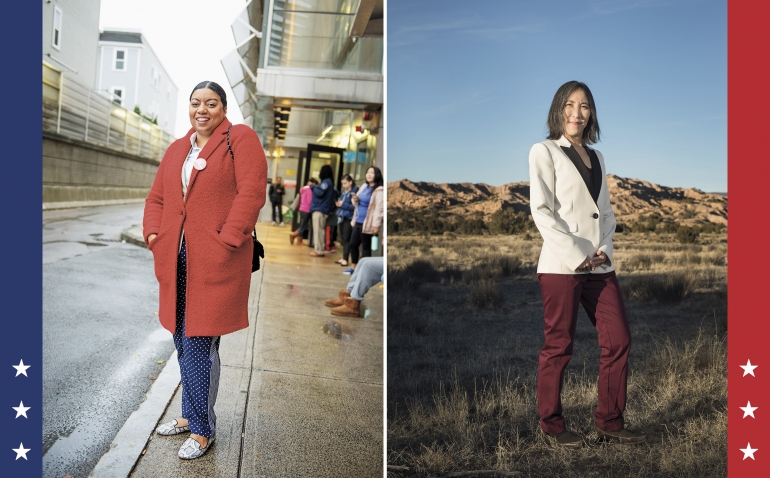

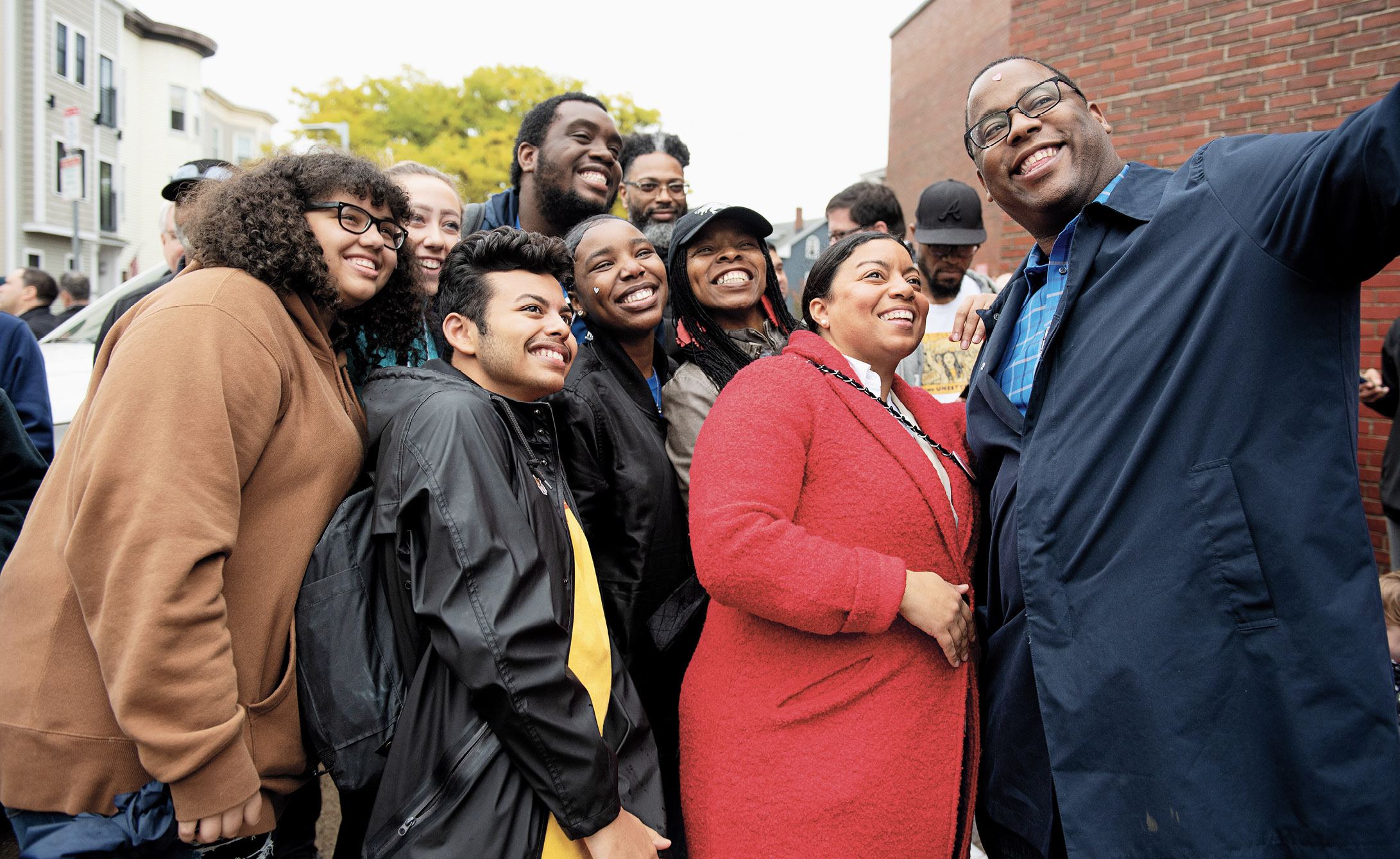
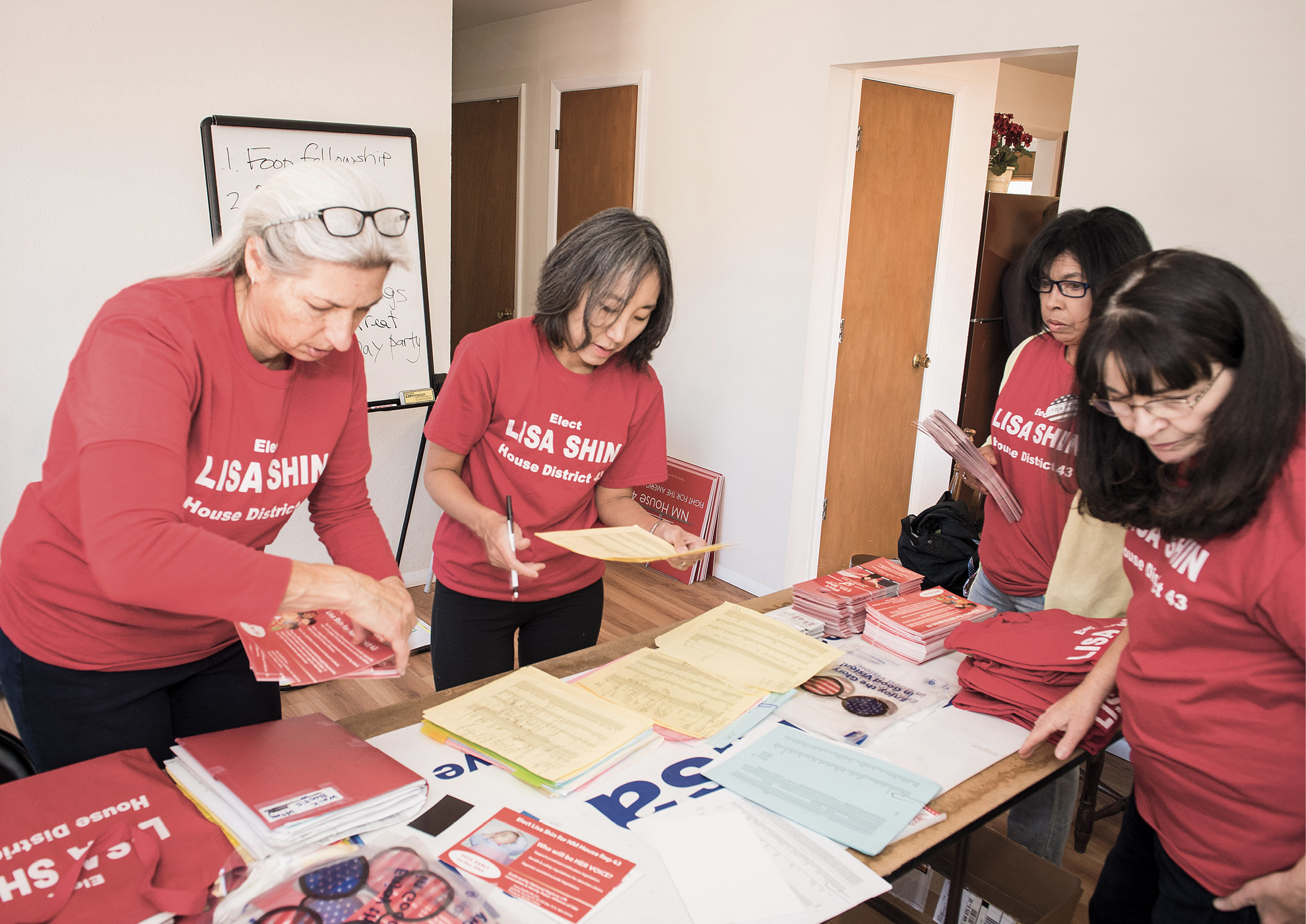

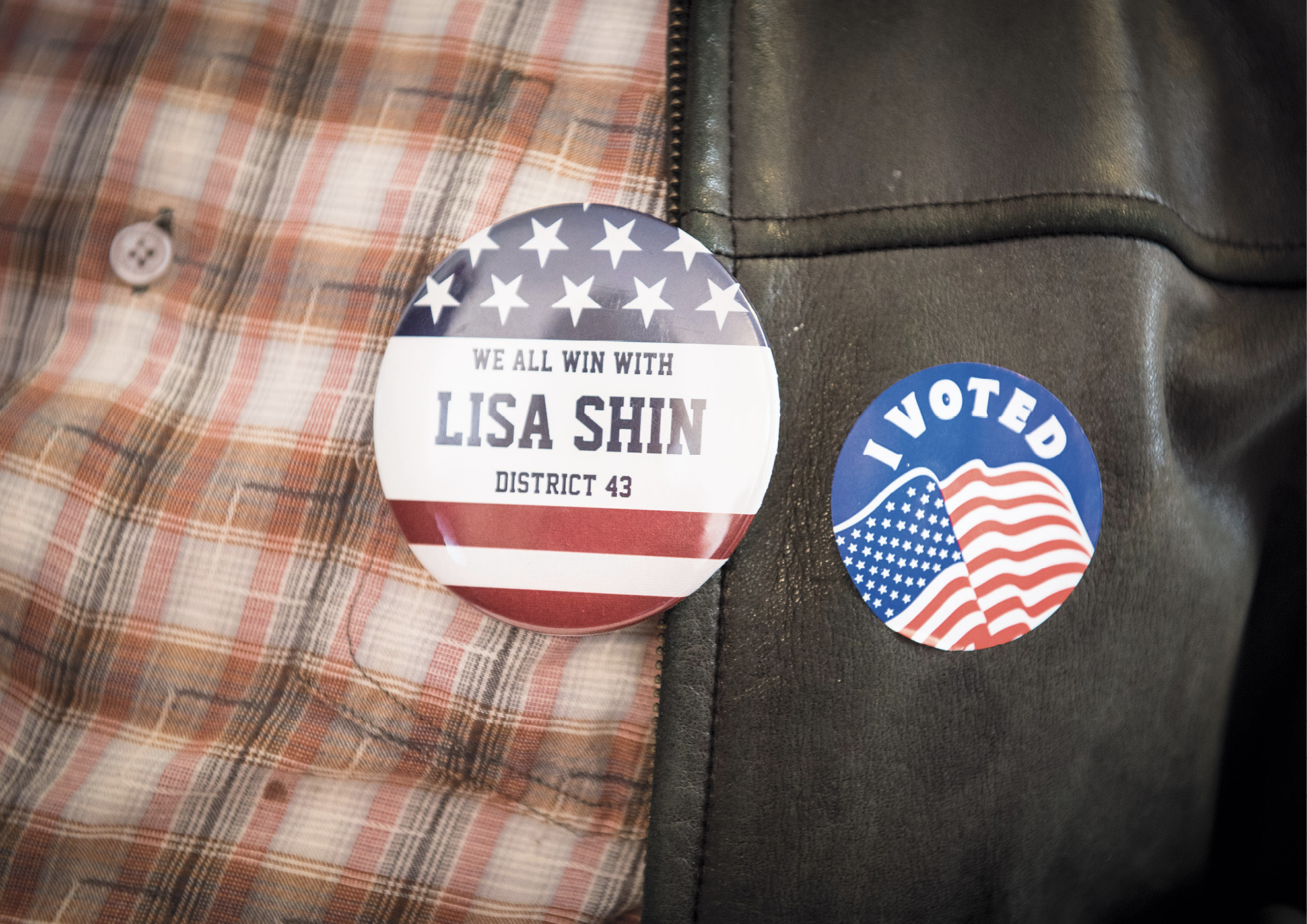
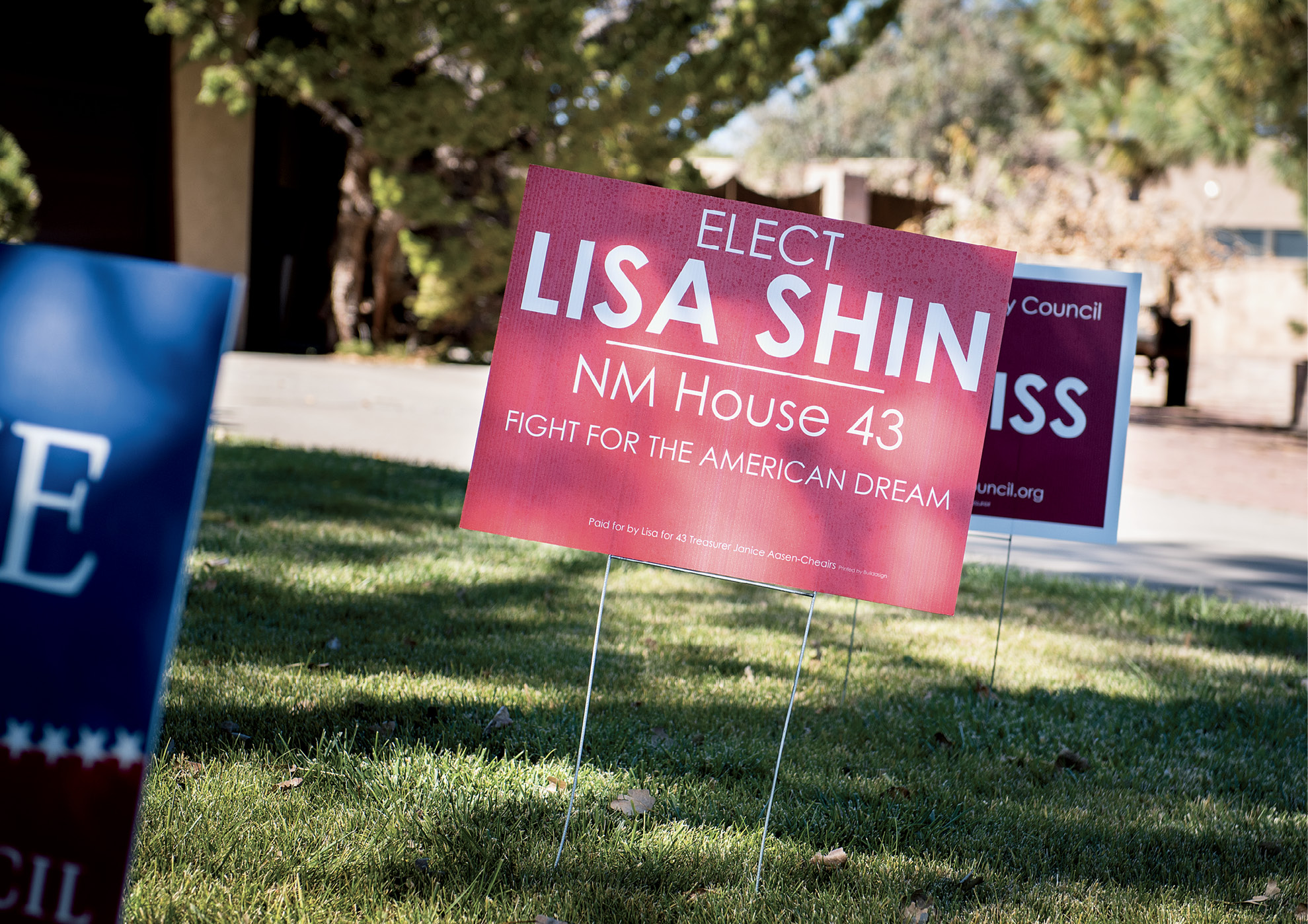

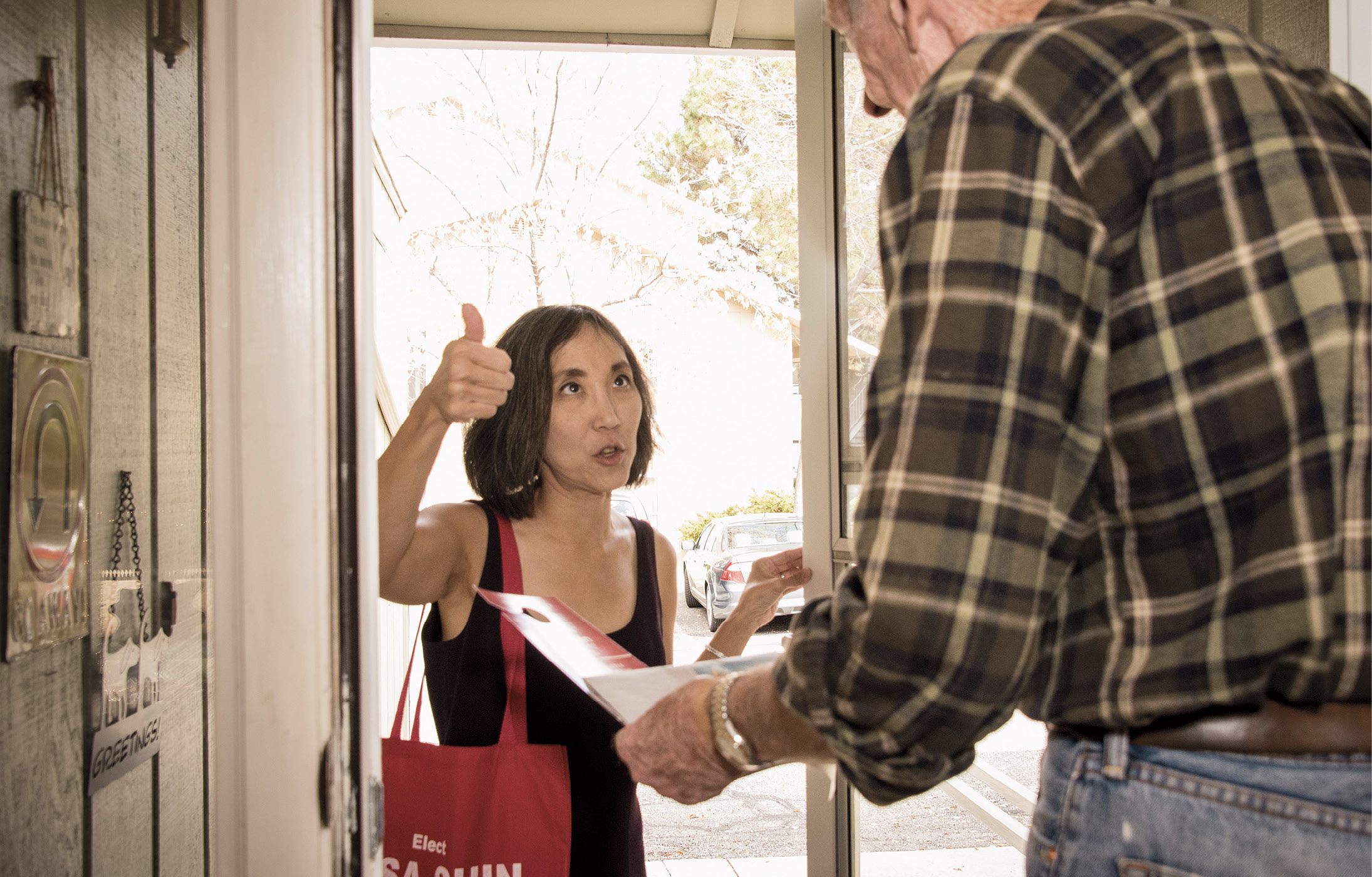
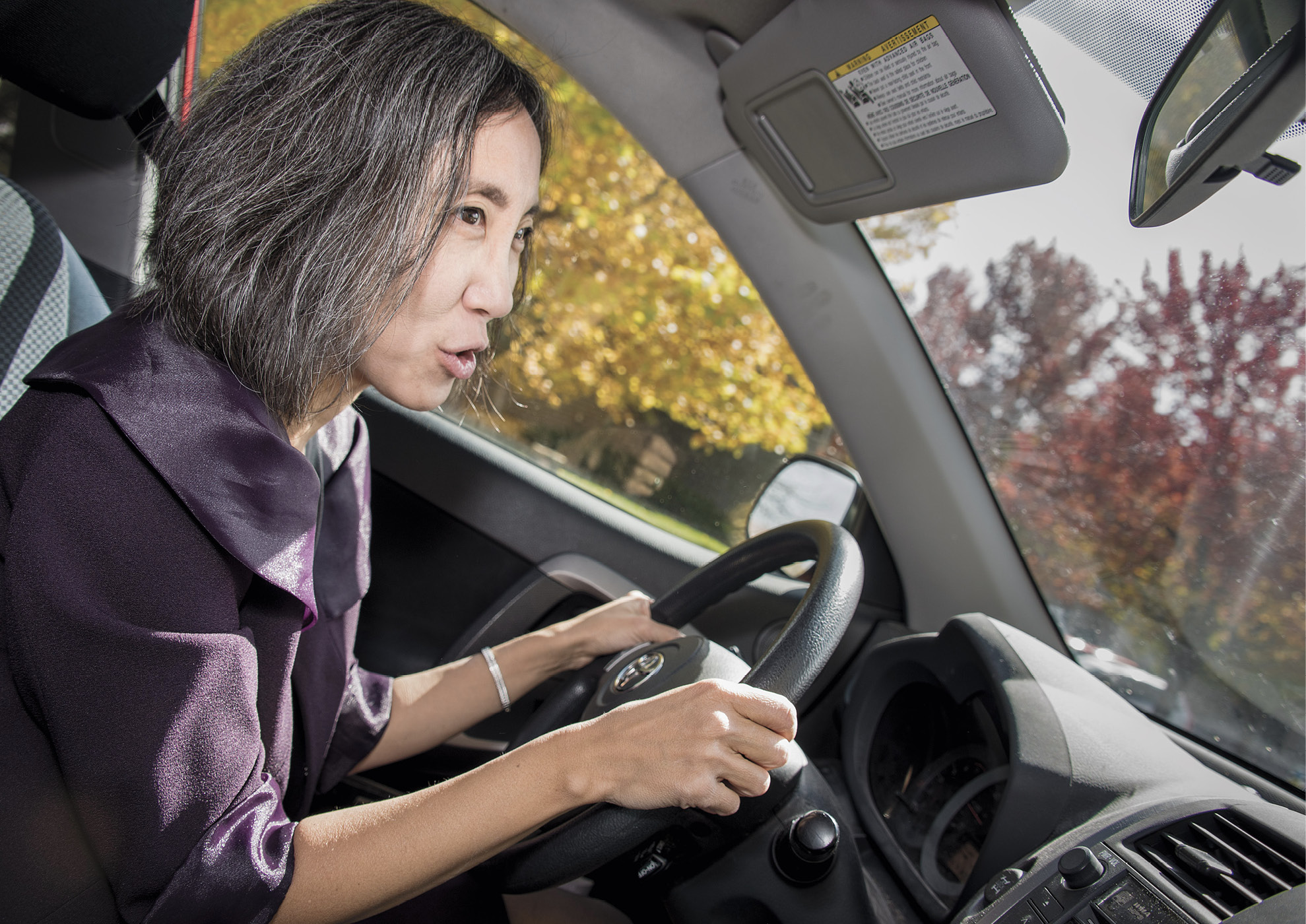
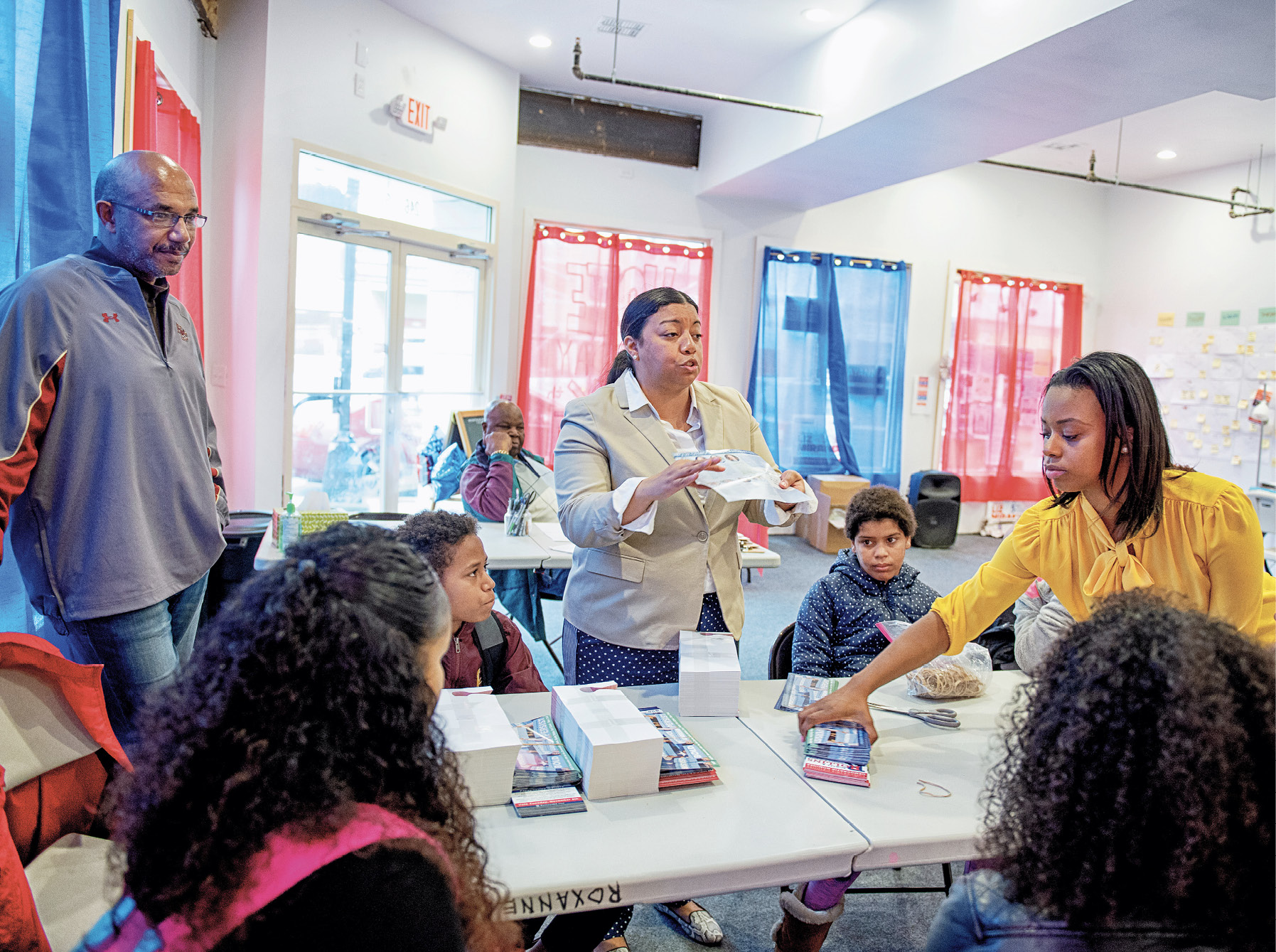
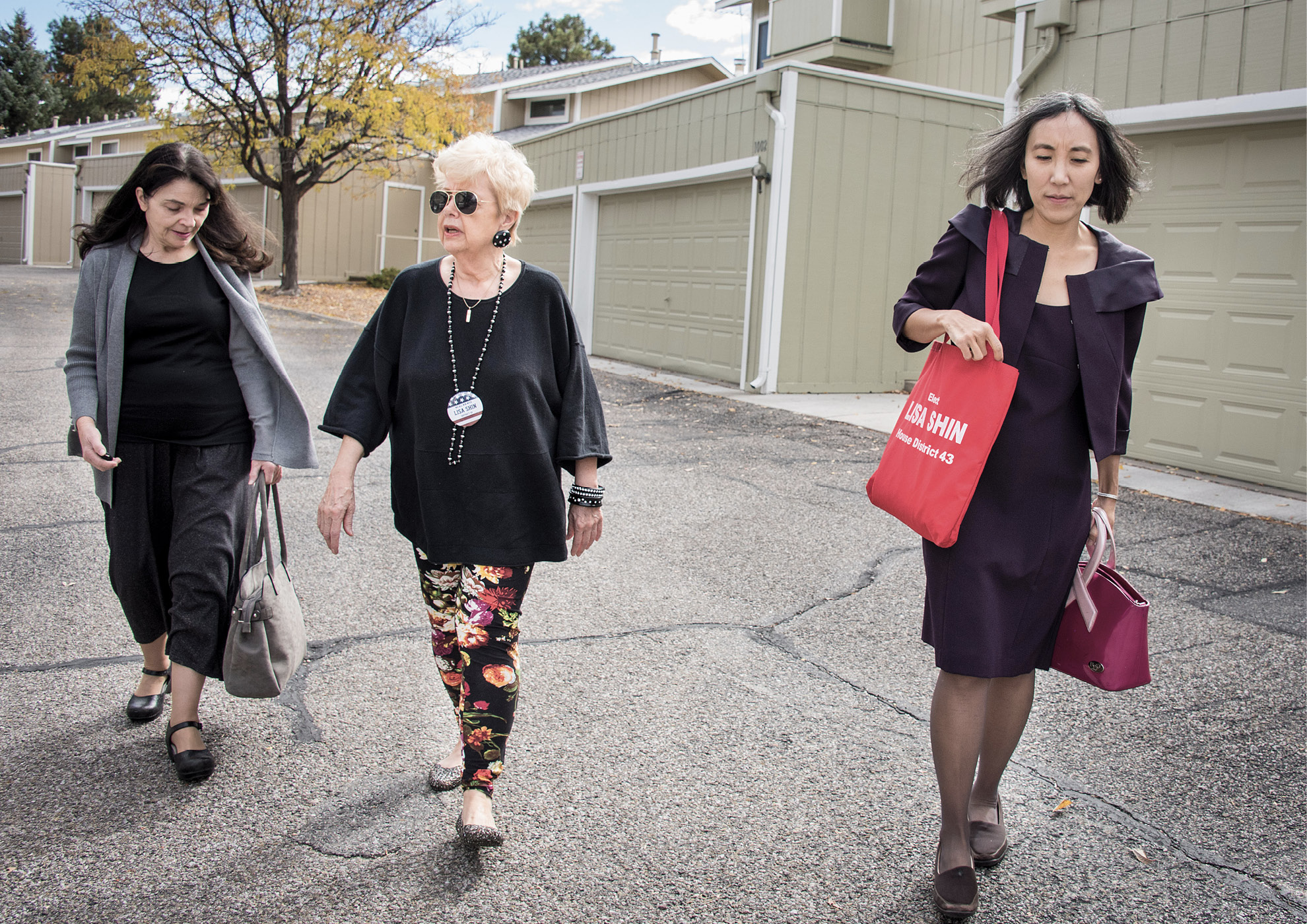
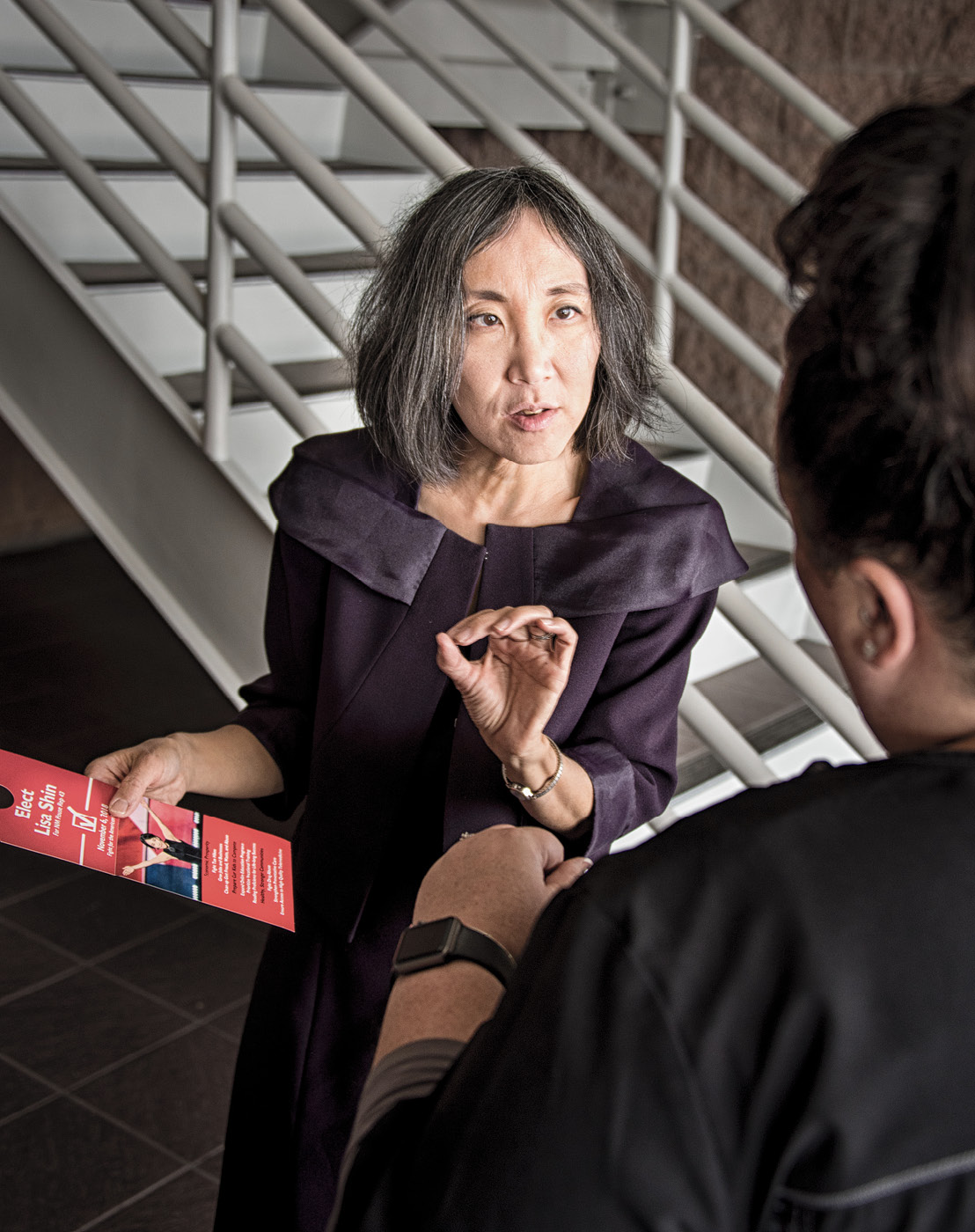


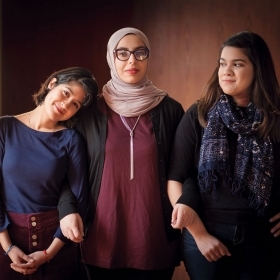
We ask that those who engage in Wellesley magazine's online community act with honesty, integrity, and respect. (Remember the honor code, alums?) We reserve the right to remove comments by impersonators or comments that are not civil and relevant to the subject at hand. By posting here, you are permitting Wellesley magazine to edit and republish your comment in all media. Please remember that all posts are public.